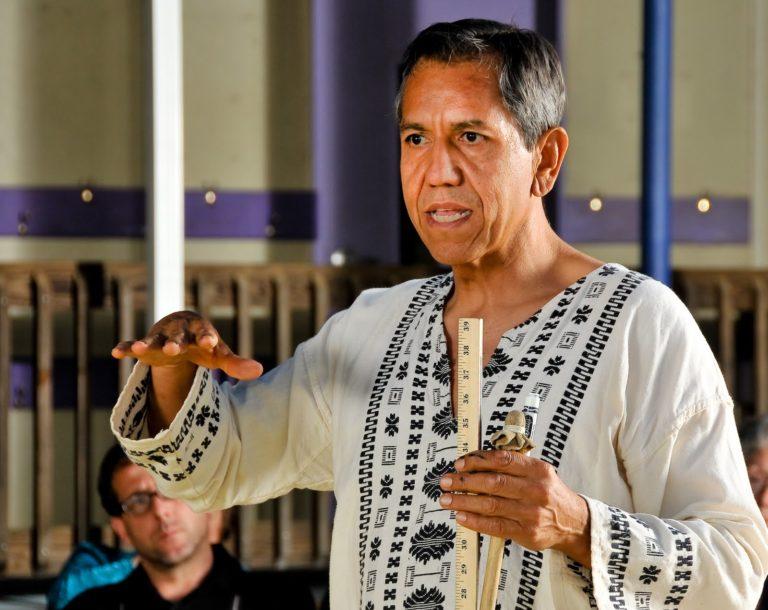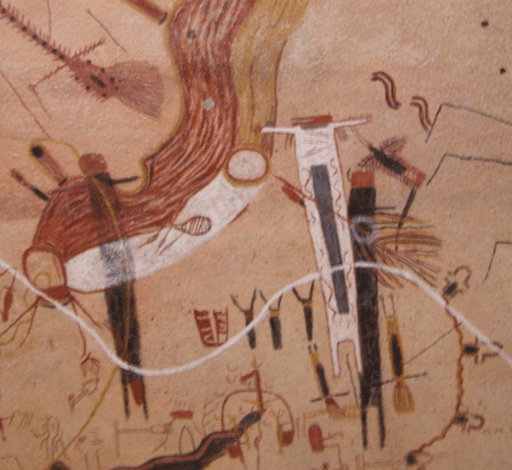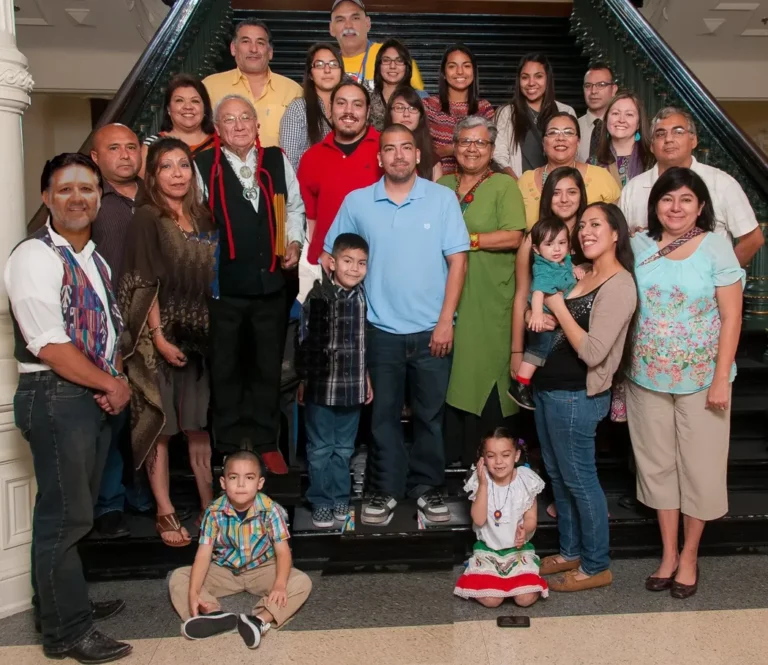Our colonial history in Texas was such that our indigenous identity was stolen and we were forced to take on our slave masters’ Spanish names, learn Spanish and forget our language, take on Christianity and leave behind our spiritual belief systems, give up our lands. When the U.S. took possession of Texas we had nothing to trade for federal recognition as U.S. Indigenous tribes/nations, and we eventually became detribalized individuals and communities mislabeled “Hispanic.”
However, most of us retained our culture that is commonly referred to as “Mexican” and in actuality is indigenous. We still speak an indigenous language (Nahuatl) within our Texas Spanish (sacate vs. lodo, cuate vs. gemelo, aguacate, zapatos, etc.). We eat indigenous foods such as corn, squash, beans, tortillas, tamales, etc. Our family structures are expansive and reflect the tribal communities of our ancestors. Our gatherings are ceremonial. Many of us continue to practice ancient ceremonies such as the Peyote way, danza, and sweats. So here in Texas many of us who are identified as Hispanic are reclaiming our indigenous identity, working to decolonize ourselves, forming communities, and embracing indigenous ways and values. We identify as indigenous and work every day to be worthy of this designation.

The issue of DNA tests has developed some questions about the accuracy of the reports. Depending on the company, of which there are several, some may give totally erroneous information and the best will only give partial and not completely reliable data on which to base your ancestral lineage. The company may tell you from which region they harvested matching DNA and tell you what tribes likely lived in that area, but that is not absolute proof that you are Coahuiltecan.
Reliable genetic testing requires in-depth processes and is very expensive, so such tests are not accessible to the general public. And even this type of extensive testing, would not provide a tribal affiliation. If the DNA tester provides a tribal affiliation, it is not a reliable source and cannot be trusted. DNA CANNOT identify tribal affiliation.
These facts should not deter a person from seeking and embracing their indigenous identity. If a family has lived in a certain area or areas for as far back as anyone can remember, then that area is probably close to their original tribal homeland. For example, if a family is from Coahuila, lived there for at least three generations that can be traced, and then moved to Texas and lived there for another five or six generations, then they are likely from the Texas/northern Mexico tribal area. If they have a Spanish last name that can be traced back to a hacienda or mission, then the family probably got that name from a slave master or a priest, who replaced their Indigenous name when they were claimed as slaves and baptized. So there are check marks that can determine if a person or family is indigenous to the Americas.

It’s important ro realize that claiming indigeneity is not enough. If a person chooses to identify as indigenous, the demand is not about knowing what tribe they belong to, but rather to serve their community of Indigenous relations. This is a much bigger challenge because a person needs to find an Indigenous community, through their existing family or local people who also identify as Indigenous, and seek elders and teachers to guide them.
In simple terms, the concept of “decolonizing” oneself means to shed the Western way of doing and seeing – every man for himself, dog eat dog, best man wins – and embrace the Indigenous way of community first and service to your people and Mother Earth. And hopefully, efforts include involvement in authentic ceremony so that a person can connect more fully (spiritually) to this responsibility.
Knowing this, there are choices to make about an Indigenous identity. If someone wants to claim Indigeneity then with that comes responsibility. A person can say, “I’m Native to the Americas and follow traditional ways.” Following traditional ways means commitment to Indigenous values and ways of seeing the world. This is a complex process and requires that joining an Indigenous community that is trying to bring back the traditional ways through ceremony, gatherings, classes, activism, and other means. It means a commitment to decolonize oneself – which is also a very complex and difficult process.
Finally, a family can decide to organize into an indigenous community and begin this journey together.

Copyright 2023 – Indigenous Cultures Institute | Site by Xica Media